Yoojin Chung designs feng shui smart-home devices
Design Academy Eindhoven graduate Yoojin Chung pokes fun at the western approach to feng shui with a trio of digital devices that offer a quick-fix approach to positive qi.
Chung's graduation project, Capturing Qi, turns three of the most well-known feng-shui objects into smart-home devices that can be controlled via an app.
The crystal ball, the wind chime and the water fountain were all reimagined as dynamic devices that users can actively monitor and control.
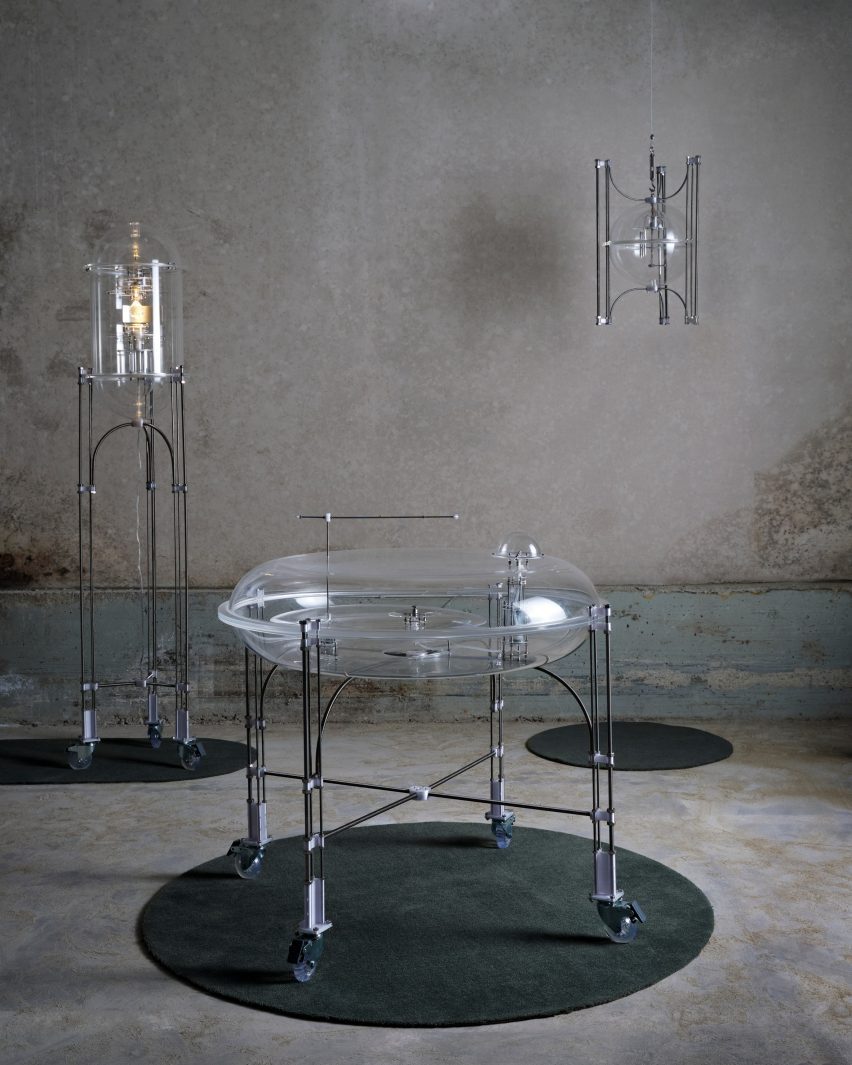
Chung intended the designs to be satirical, highlighting how this ancient practice has been packaged up into consumer products with the promise of good health and fortune.
"The project is a criticism of the commodification of Feng Shui, of how people just buy objects because it's the easiest way to practice," said the designer, who grew up in South Korea.
Feng shui is an ancient Chinese practice that has existed for millennia. It centres around promoting the flow of positive energy, known as qi, believed to increase wellbeing and prosperity.
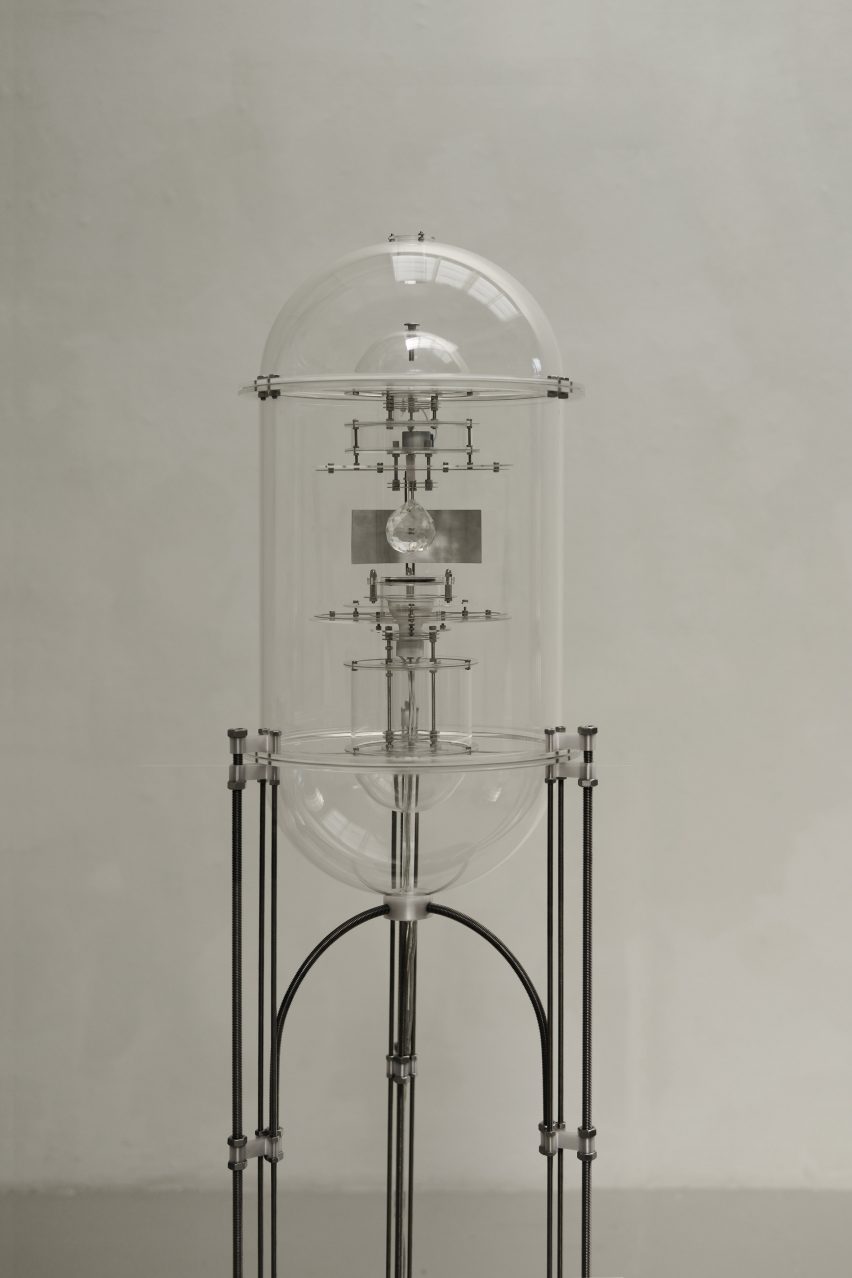
The practice became popular in western countries in the late 20th century, which fuelled a huge global market for feng shui objects for the home.
"People just buy these objects, place them in their homes and forget about them," Chung told Dezeen.
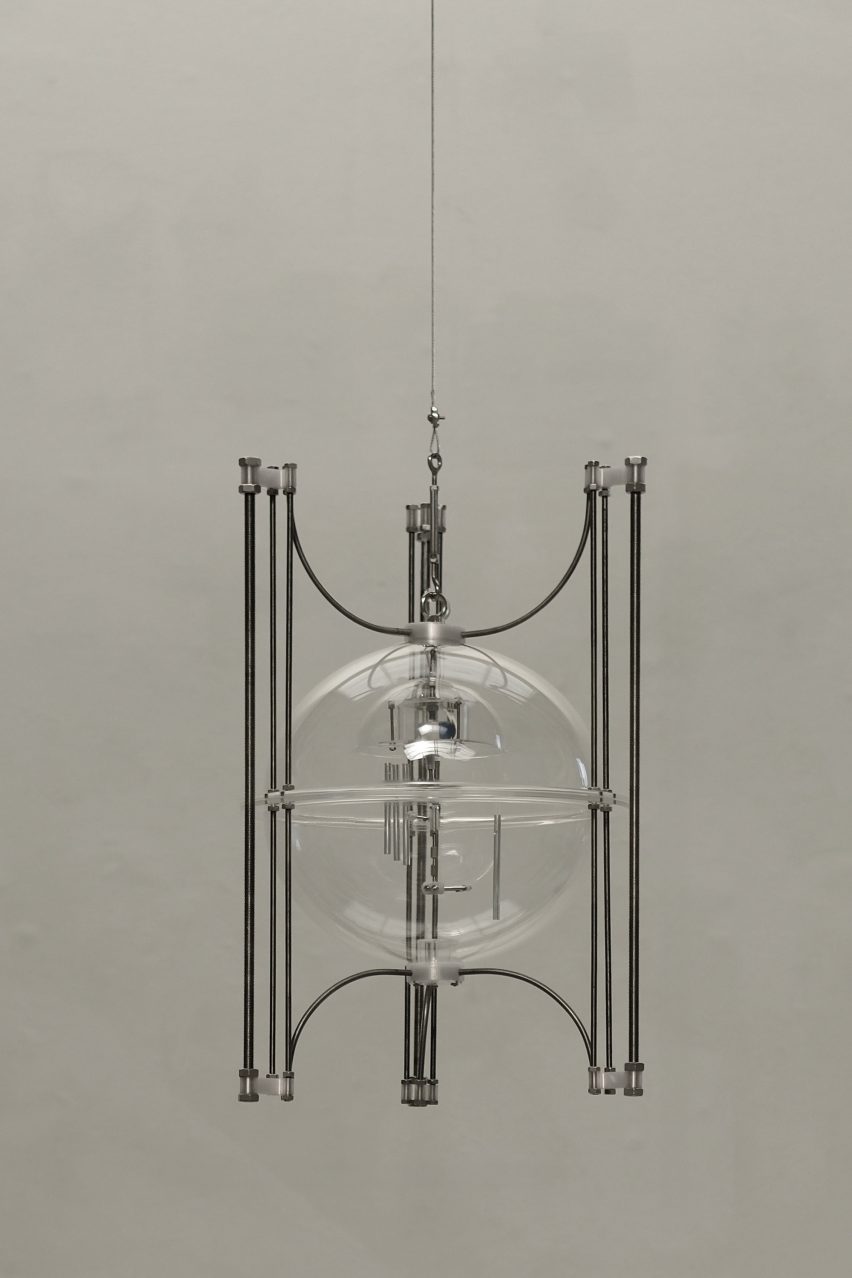
Chung's project suggests how this trend could evolve in response to the growing market for smart-home devices.
Her electronic devices use motion to create a visual illusion of energy flow, in the form of a spinning crystal, flowing water and chimes that look like they are swaying the breeze.
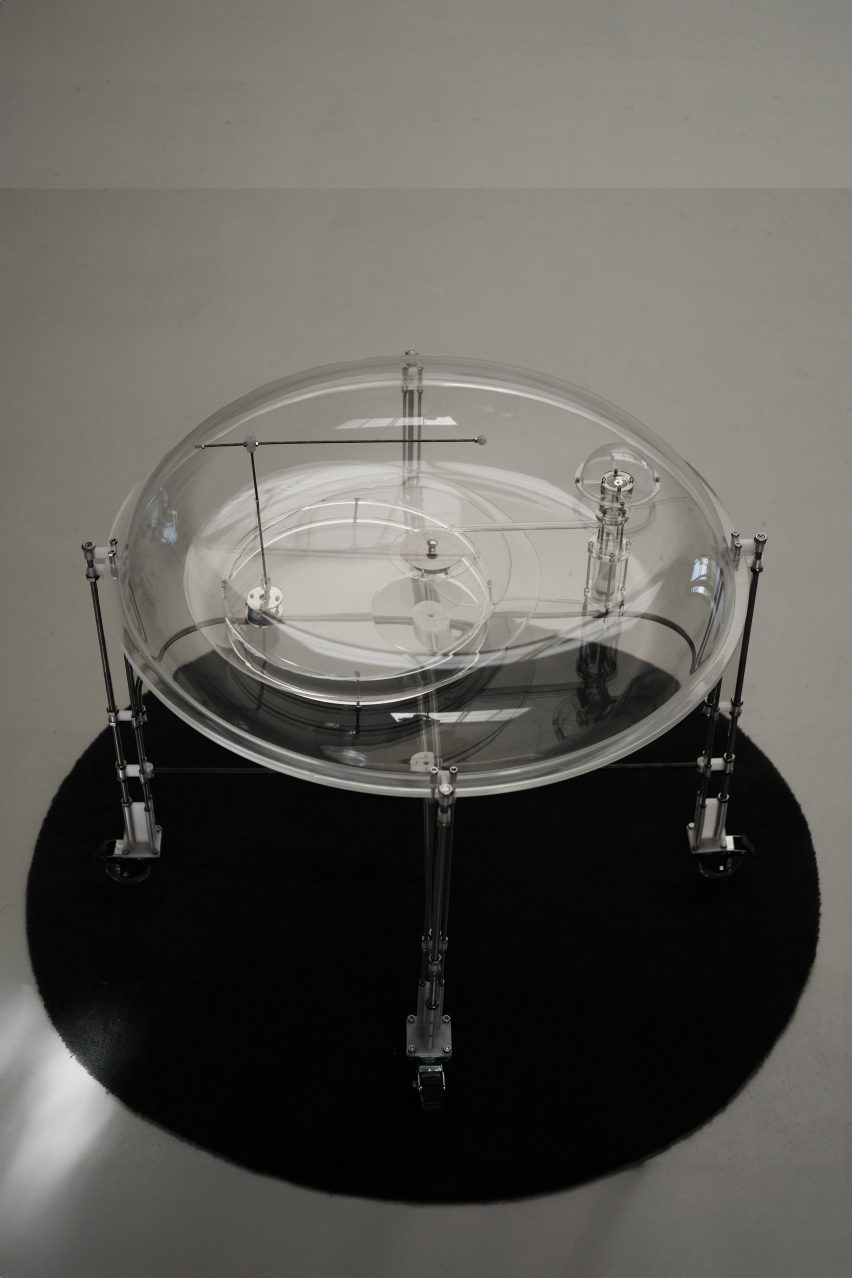
All three are fitted with Arduino circuit boards, allowing this motion to be fully controlled by Bluetooth.
Users activate the devices using an accompanying smartphone app, with the understanding that they are releasing qi in the process.
"The more you activate it, the more success you have," suggested Chung.
"The reason why feng shui is gaining popularity is because we're all striving for success," she added. "Feng shui offers you a little bit of hope that is beyond your control, but it is also human nature to want control."
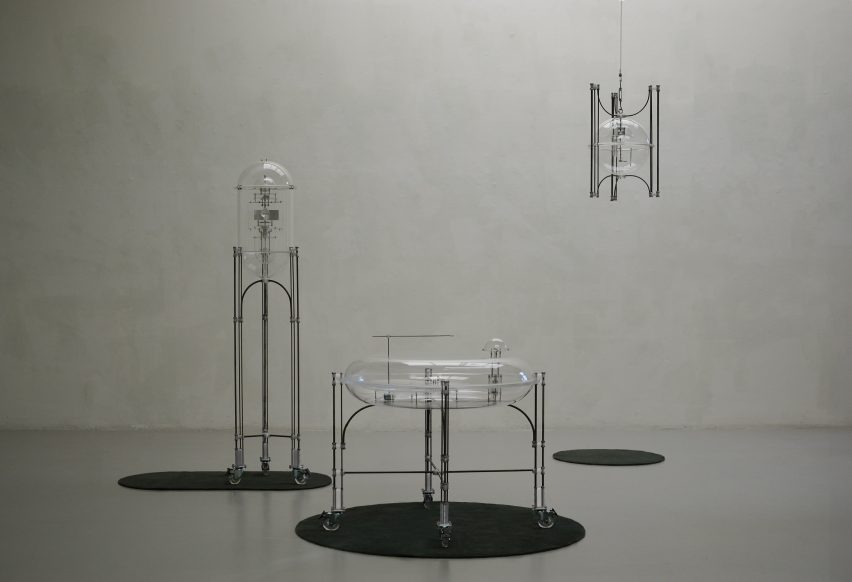
All three devices were intended to resemble scientific equipment. Chung drew on the vacuum chambers used by 18th-century scientists to prove the existence of invisible gases.
The wind chime is a hanging device while the other two are mounted on castors, allowing them to all be easily moved into different positions around the home.
"This interaction makes you think about what type of success you want," said Chung, pointing out how different types of object placement have different meanings in feng shui.
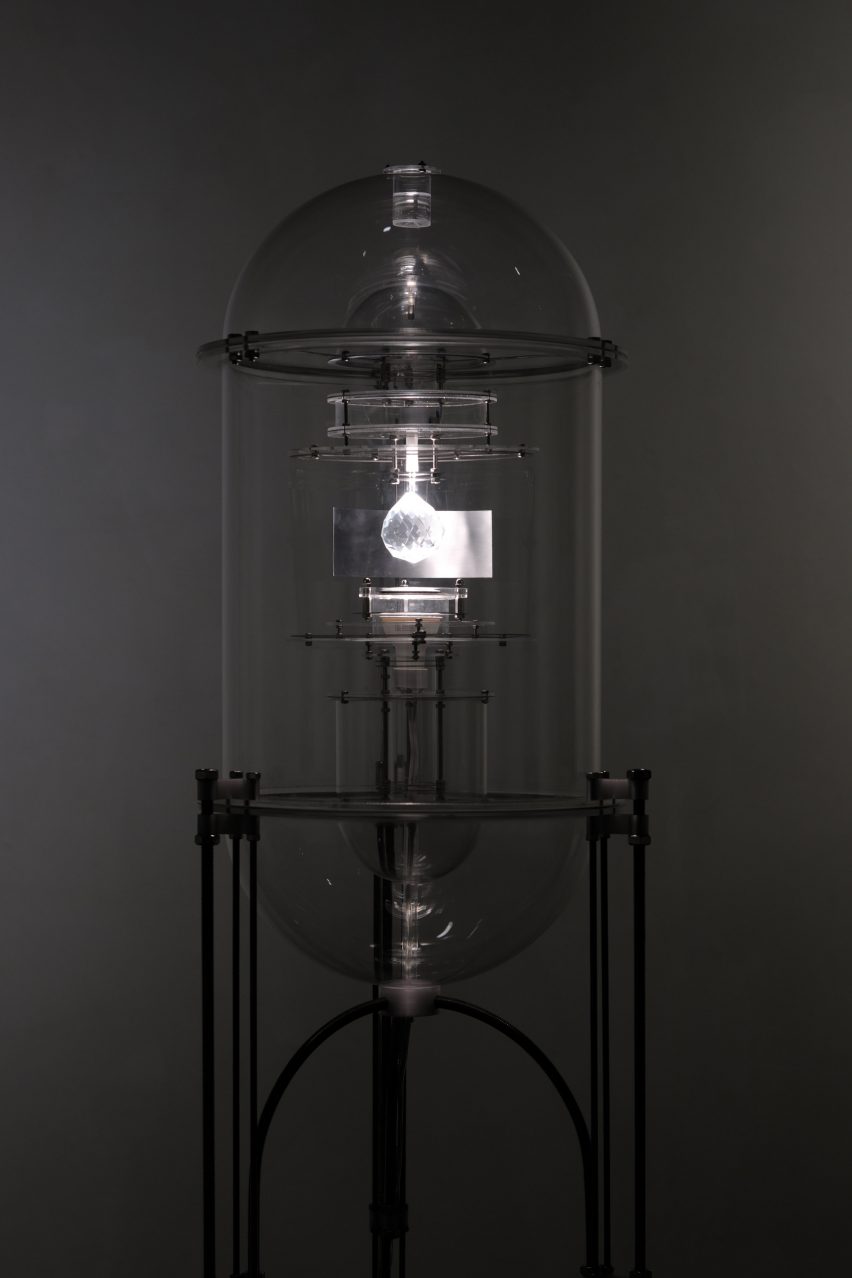
The designer graduated from the MA Contextual Design programme at Design Academy Eindhoven (DAE).
Other DAE graduates from 2023 include Ziyi Lian, who created a mobile street-food stall for offal, and Eric Treillard, who designed a mobile kit for turning unused plots into playgrounds.
The photography is by Marie Kang unless otherwise indicated.